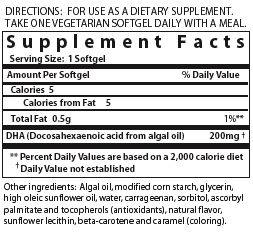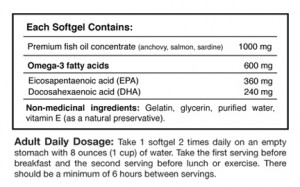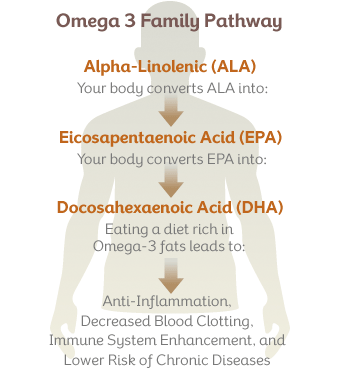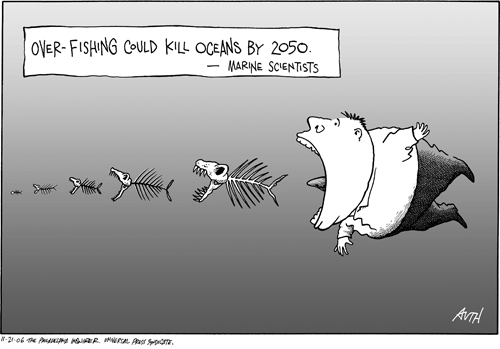What are algae supplements?
Do you own goldfish? Check your tank. See any green stuff growing on the sides? That’s algae.

Algae are marine-based photosynthesizing organisms (in other words, they live in water and make energy from sunlight).
Although they make energy from sunlight just like land-based plants, because they don’t have many of the features that land-based plants have (e.g. leaves, roots, etc.) they’re considered to be a different group.
Algae are one of the most abundant organisms around. Simple algae are one-celled organisms; seaweeds are just algae that decided to go into business together.
In essence, algae have three components that make them nourishing to eat:
- chlorophyll and other plant pigments
- omega-3 fatty acids in the form of eicosapentaenoic acid (EPA) and docosahexaenoic acid (DHA)
- important marine minerals such as iodine
Phytochemicals
The chlorophyll and other plant pigments are known as phytochemicals, or plant chemicals. We know that these plant chemicals have benefits for humans, although we don’t know all the chemicals or exactly how they work.
EPA/DHA
Eicosapentaenoic acid (EPA) and docosahexaenoic acid (DHA) are often cited as being the beneficial components of fish oil, yet they actually originate in algae (mainly DHA).
Algae are the base of the food chain for fish. Fish consume these algae and then concentrate high amounts of EPA and DHA in their tissues.
Iodine and other marine minerals
Algae can absorb and contain marine minerals such as iodine, magnesium, potassium, calcium, and magnesium.
Consuming iodine from dietary sources such as seaweed is essential for the maintenance of good health, particularly for thyroid health.
What you should know about algae supplements
Sure, you may have green stuff growing in that goldfish tank, but we don’t recommend you lick it. (Leave it for the plecostomus.)
Most algae supplements are produced under controlled laboratory conditions.
Omega-3 fatty acids
Humans developed on diets consisting of marine life, wild game and/or inland plants.
This type of diet provided sufficient omega-3 fats, which resulted in an omega-6/omega-3 ratio that was around 1:1.
The current North American diet provides a ratio that is around 16 to 20:1 (omega-6:omega-3).
This is likely due to the shift in dietary staples, which generally do not include foods like flax, hemp, walnuts, perilla, green leafy veggies, chia, fish and algae.
The essential fats from algae may improve fatty acid balance and:
- Cardiovascular function
- Nervous system function
- Immunity
- Memory & concentration
- Mood
- Neurotransmission
- Insulin sensitivity & nutrient partitioning
- Body composition
How do algae supplements compare to fish supplements?
Algae supplements appear to be similar to fish supplements.
Data indicate that supplementing between 1 and 2 grams of algae oil per day significantly elevates blood levels of DHA and EPA. This dose may also help to lower blood triglycerides, raise HDL, control inflammation, and lower blood pressure and heart rate.
While the estimated extent of DHA retroconversion to EPA has been reported at 1% to 25%, the average is around 12%.
Many algae supplements have a lower recommended dose than fish oil supplements.


Why the difference?
“Because DHA is the active component for lowering triglycerides, for bioavailability to the brain and organs, and all omega-3s can be made from DHA. Algae oil is more concentrated in omega-3s and in DHA and is thus better formulated for human metabolism.”
–Dr. Scott Doughman, algae researcher
Why not just eat ALA?
Flax is a dense source of alpha-linolenic acid (ALA), another omega-3 fat.
Data show that flax tends to increase blood levels of ALA, but not necessarily EPA and DHA.

While ALA can be converted into EPA, the conversion rate varies and tends to be low.
Various factors diminish our ability to convert ALA into EPA, including:
- High amounts of saturated fat, trans fat, cholesterol, and sugar in the diet
- A high blood sugar level
- Genetics
- High stress
- Altered micronutrient status
- Too little zinc, magnesium, calcium, biotin, vitamin C, vitamin B3, and vitamin B6
- Too much vitamin A, copper
- Unbalanced fatty acid ratios (too much omega-6)
- Pharmaceuticals/medications
- A high alcohol intake
- Sex (women seem to convert ALA to EPA better than men)
- Advancing age (older folks don’t convert ALA to EPA as well)
So, while flax can slightly help to improve fatty acid balance, it won’t do much good if one’s overall diet is poor.
Why not just use fish oil supplements?
Well, for a few reasons. The big three include:
1. Overfishing
A study from 2006 found that if current overfishing and pollution patterns continue, we can expect to see a complete collapse of world fish populations by 2048.
It takes about 2 pounds of wild fish to produce 1 pound of farmed fish. Octo-mom doesn’t think that’s sustainable.

The UN has reported that 2/3 of the world’s fish are either depleted or fully exploited. Some of this might be due to the recent 3000% sales increase in fish oil. If everyone decided to eat more fish and/or take fish oil, we wouldn’t have enough fish.
90% of small fish caught in the world’s oceans each year, such as anchovies, sardines, mackerel and menhaden, are processed to make fishmeal and fish oil. These species reproduce quicker than others, making them more resilient to fishing pressure.
Factory-farmed fish, pigs, and poultry are consuming 28 million tons of fish each year as feed, roughly six times the amount of seafood eaten by Americans.
For more on oceans and overfishing see:
The End Of The Line
2. Contaminants
Fish concentrate not only EPA and DHA from algae, but environmental contaminants like the pesticides DDT and Dieldrin and polychlorinated biphenyls (PCBs).
Over the last 20 years the ocean’s mercury levels have risen about 30%. This means people around the world could be increasingly exposed to mercury from eating fish and other seafood.
Although algae contain some contaminants, potential for concentrating high levels is limited.
Studies show that unpurified fish oil supplements contain unsafe levels of environmental contaminants. Other data have revealed that 80% of fish oil supplement (61 of 75) companies verify that they have met the strictest U.S. standards for eliminating contaminants.
3. Karma light supplementation
Some people choose not to eat animals and attain omega-3’s from plant foods.
Summary and recommendations
Most of us benefit from omega-3 supplementation because our omega-6 intake is so high.
We would be able to use fewer omega-3 supplements if we balanced our food better (see All About Bad Fats & All About Flax for more). The fish oil supplement recommendations that exist today are based on a high omega-6 intake.
Most algae supplement manufacturers recommend between 200 and 300 mg/day. While that may be enough for those with a balanced fat intake from food, optimal health benefits may result from consuming between 1 and 2 grams (1000 and 2000 mg) of combined EPA/DHA per day from algae, split between two doses. Specific conditions may warrant more or less.
Extra credit
About 6% of U.S. women, or about 3.8 million people, exceed the amount of mercury that the EPA says is safe for fetuses.
The demand for omega-3 supplements would be much lower if we limited our intake of omega-6 fats.
Omega-3 fats thin the blood – if you take a blood thinning medication, don’t supplement until checking with your doctor.
Data indicate that pigs and poultry around the world consume more than twice as much seafood as the Japanese eat.
Store your algae supplement in a dark, cool place. Keep out of light and high temperatures.
References
Click here to view the information sources referenced in this article.
Learn more
Want to get in the best shape of your life, and stay that way for good? Check out the following 5-day body transformation courses.
The best part? They're totally free.
To check out the free courses, just click one of the links below.




Share